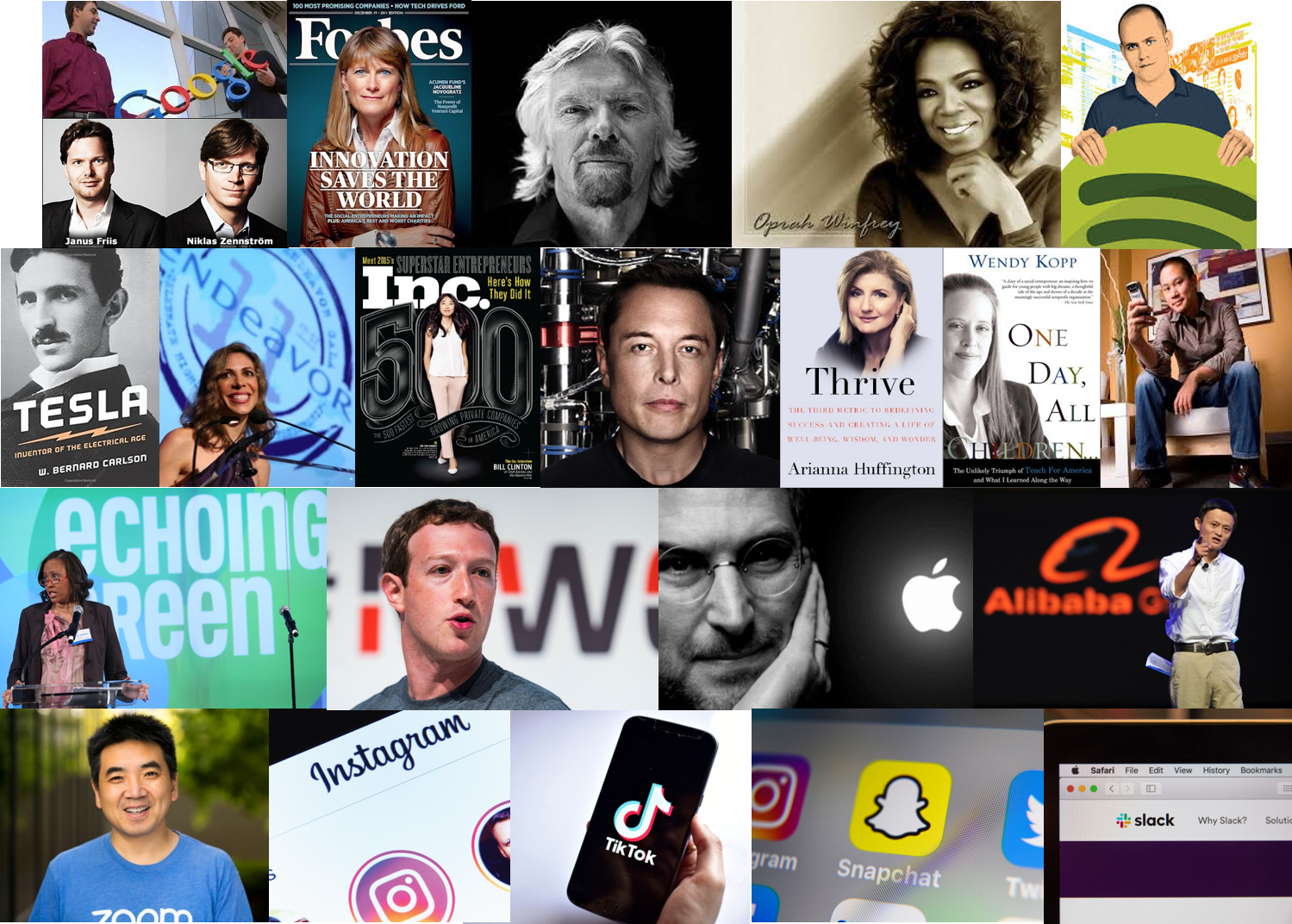With startups, many people focus on what entrepreneur and investor Marc Andreessen calls “product/market fit”: “being in a good market with a product that can satisfy that market.” It’s a great point, and too many ventures fail or founder because they never find it.
But not nearly enough attention is paid to what I call “founder-venture fit”: when the venture matches well with the founder’s (or co-founders’) knowledge, strengths, passions, and values. Some have written about similar ideas—“founder-market fit” or “founder fit”—but too many aspiring entrepreneurs miss this critical point.
Serial entrepreneur and investor Brad Feld wrote: “I’ve come to believe that—especially among first time entrepreneurs—founder market fit is much more important than product market fit at the inception of the company.”
Examples of Founder-Venture Fit
When we survey the startup landscape, we see founder/venture fit in spades:
We see it with Elon Musk, who grew up fascinated by technology and physics, learned to think deeply about “first principles,” and became unsettled by dark scenarios about the planet’s future without bold action, big bets, and breathtaking innovation. Looking back, he said, “I really was thinking about this stuff in college…. I like to make technologies real that I think are important for the future and useful in some sort of way.”
We see it at Spotify, where co-founder Daniel Ek combined his two passions growing up (music and technology).
We see it with Oprah Winfrey, who found a brilliant and personal way to “Turn your wounds into wisdom,” as she says.
We see it with Virgin’s Richard Branson, who exudes personality and fun in all his endeavors.
We see it at GoPro with founder Nick Woodman’s love of adventure and entertainment: “It comes down to how much authentic passion you have for something.”
We see it at Patagonia with Yvon Chouinard’s background in rock climbing and environmentalism. At Patagonia, they “use business to inspire and implement solutions to the environmental crisis.”
Thinking back about his early days with Paul Allen at Microsoft, Bill Gates mused, “We just loved writing software.”
So what are we to make of this? Tech entrepreneur and investor Chris Dixon notes that “founder/market fit can be developed through experience: No one is born with knowledge of the education market, online advertising, or clean energy technologies. You can learn about these markets by building test projects, working at relevant companies, or simply doing extensive research.”
He adds this important note as well: “founders should realize that a startup is an endeavor that generally lasts many years. You should fit your market not only because you understand it, but because you love it — and will continue to love it as your product and market change over time.”
And how do we gauge whether we (or others) have it? James Currier from NFX, a seed-stage venture firm, identified “4 Signs of Founder-Venture Fit”:
- Obsession: he counsels founders, “don’t start a company unless you can’t not do it… unless you can’t sleep at night and your brain is exploding with the idea.”
- Founder Story: a compelling “why” inside the founder that resonates with the venture’s target customers.
- Personality: a nature and set of interests that resonates with peers and customers.
- Experience: knowledge and experience can surely help, but he notes that “too much experience is not always a good thing. Certainly, we do look for founders who have enough industry experience that they understand the market. But not so much experience that they don’t have any disruption left in them…. Too much knowledge is a blocker to innovation.”
Too many aspiring entrepreneurs want to be founders for reasons that may not serve them well or stand the test of time—reasons like a desire for recognition or fame.
Entrepreneurship isn’t for the faint of heart. For many, it will require an obscene amount of commitment, persistence, and resilience—the kinds that usually flow from a true sense of purpose, calling, and conviction. Do you burn for this idea, for this cause, for this opportunity to generate value and have impact?
The entrepreneurial path is both exhilarating and exasperating. You’re wise to find a great founder-venture fit at the outset.
Tools for You
- Traps Test (Common Traps of Living) to help you identify what’s getting in the way of your happiness and quality of life
- Quality of Life Assessment to help you discover your strongest areas and the areas that need work and then act accordingly
- Personal Values Exercise to help you clarify what’s most important to you
Related Articles
- “How to Choose a Co-Founder“
- “The Essence of Entrepreneurship“
- “Culture: The Entrepreneur’s Blind Spot“
++++++++++++++++++++++++++++++
Gregg Vanourek is a writer, teacher, TEDx speaker, and coach on leadership and personal development. He is co-author of three books, including LIFE Entrepreneurs: Ordinary People Creating Extraordinary Lives (a manifesto for integrating our life and work with purpose, passion, and contribution) and Triple Crown Leadership: Building Excellent, Ethical, and Enduring Organizations (a winner of the International Book Awards). Check out his Best Articles or get his monthly newsletter. If you found value in this article, please forward it to a friend. Every little bit helps!



